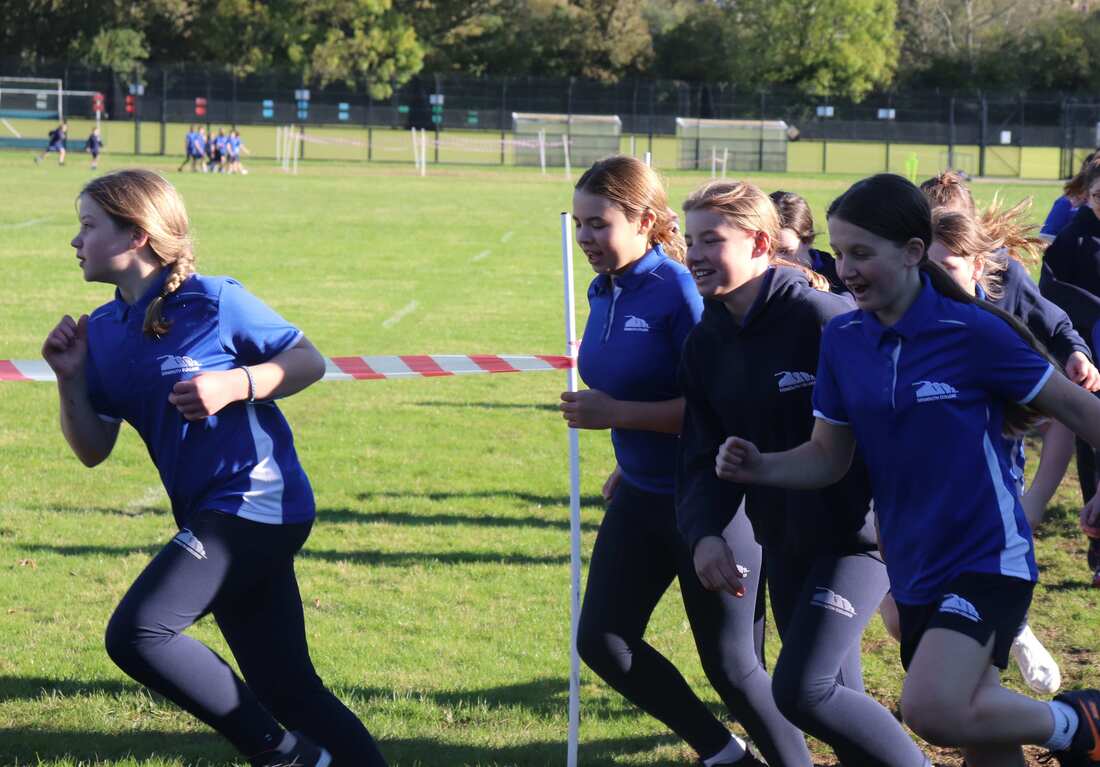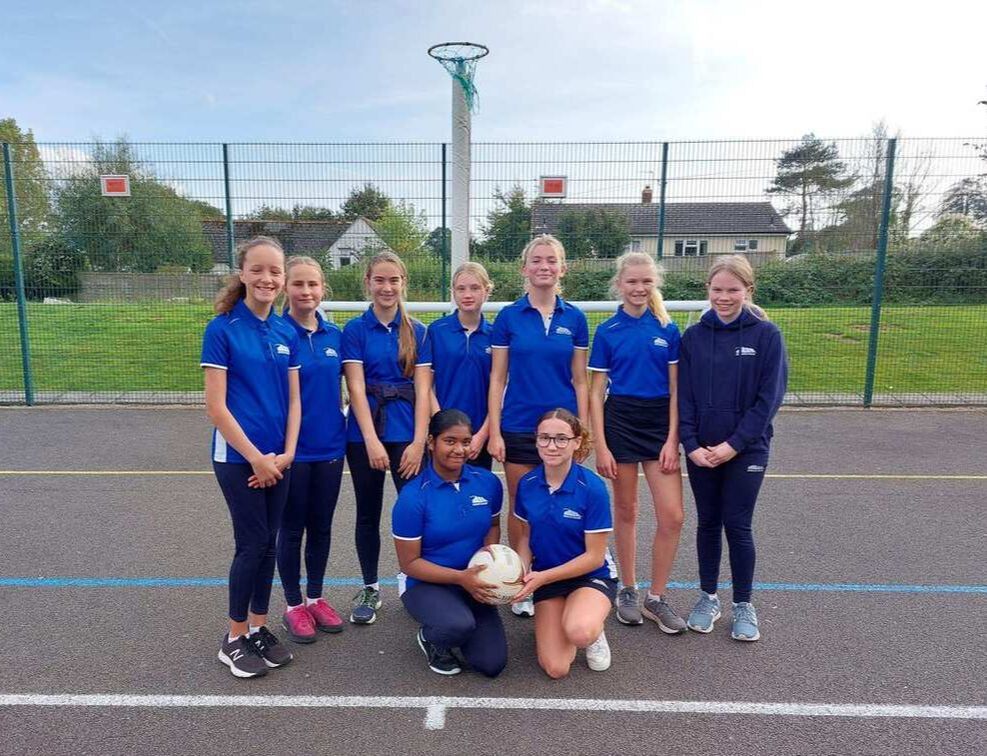PE Department IntentTo develop competence and confidence across a range of sporting activities and engage in a lifelong journey in physical activity. Our curriculum educates students as to the value of physical activity and prepares all students with the knowledge on how to lead an active and healthy lifestyle and promotes skills for success in wider life. Key Questions for students What can you show? What do you do? What do you know? What life skills can you transfer? Key stage 3
What do students study?
Throughout Key Stage 3 students are taught two hours a week of Physical Education. Links with primary and partner secondary schools feature significantly in our College calendar and have been a major success. Students will:
These processes are delivered through a range of activities including: athletics, badminton, basketball, striking and fielding (cricket/rounders), dance, football, gymnastics, health and wellbeing, hockey, netball, rugby, tennis, sports aerobics and personal training. In Year 9, students also have the opportunity to take part in circuit training, orienteering, handball and ultimate frisbee. KS3 Curriculum Activity Maps Key stage 4
All students in years 10 and 11 participate in compulsory core PE. Students continue to build on knowledge and skills learned at KS3 and have the opportunity to use additional fitness facilities. This includes: spin bikes, weight machines, resistance equipment and cardiovascular machines. Other additional activities include trampolining, street surfing, orienteering and boxing for fitness. Students develop their understanding of the benefits of regular physical activity, improve competence and performance across all activity areas and develop exercise patterns that they will take in to 6th form and beyond.
GCSE PE Students can choose to study this qualification across years 10 and 11. WHO IS THIS COURSE FOR?
Any student who has a love of sport. The ideal student will have an ongoing history of representing the College in at least two competitive sports and will be regularly participating in physical activity. An interest in the world of health and fitness in terms of how to lead a healthy lifestyle, what makes one performer better than another and the effects of exercise on the body is important. You should also be interested in how sport affects our society in terms of the media, sponsorship and major sporting events. As well as the practical skills and competency within at least two physical activities the ideal student will have a sound level of literacy to enable success on the examination paper. EXAM BOARD, COURSE CONTENT & ASSESSMENT DETAILS—AQA Course Content (Theory 60%):
To support learning we provide enrichment opportunities such as GCSE PE workshops, practical weekend away and attendance at student conferences and events. Course Content (Practical 40%): Three practical performances in different physical activities in the role of player/performer; one in a team activity, one in an individual activity and a third in either one other team or individual. Examples of Team activities: Basketball, Cricket, Football, Hockey Netball, Rugby, Tennis doubles Examples of Individual: Athletics, Badminton singles, Boxing, Canoeing, Equestrian, Swimming, Skiing, Tennis singles You will also be required to complete a piece of written coursework to include an analysis and evaluation of performance to bring about improvement in one of your chosen activities. WHAT CAN THIS COURSE LEAD TO POST 16? BTEC Level 3 Sport is offered across years 12 and 13. The course is bespoke and can be delivered as a 1, 2 or 3 A-Level equivalent. Course units include sports development, coaching and leadership, sports injury management, business in the sports industry and personal training. It provides an excellent foundation for study in any sports university courses as well as psychology, sociology and business due to the diverse content of the theory specification. FOR WHAT CAREERS WILL THIS COURSE BE USEFUL? Teaching (either primary or secondary with PE), Health or Science as a specialism, Coaching, Armed Forces, medical professions such as Physiotherapy, Dietician, Occupational Health, Health Visitors, Outdoor Educational or Recreational Instructor roles. Also, due to the increase in socio-cultural topics: Media (particularly sports journalism), anyone interested in business in terms of sponsorship or product development. key stage 5
BTEC Level 3 Sport This is a sports course providing students with excellent breadth and depth of subject areas. The course is flexible to suit the cohort of students each year. This can include offering the Extended Certificate (1 A level), National Diploma (2 A Level) and Extended national Diploma (3 A level). The current Year 12 and Year 13 classes are studying the National Diploma. What do students study? (National Diploma units) At Sidmouth college we follow the new AQA Level Qualification which lasts two years. All examinations take place at the end of two years.
How are students assessed? Both courses include ongoing coursework assessed by class teachers and moderated by the exam board. There will be at least three units where you conduct research and then can take your research notes into a supervised assessment. One exam taken within the two years. Is this course for me? Students should achieve at least a 5 in GCSE PE. Students can progress on to University to study courses in sport, leisure and physical education. The course is also an excellent pathway towards careers in the sport industry. |
Access Octomono Masonry Settings
Subjects
All
|
- Home
-
About Us
- About our School
- Board of Governors
- Careers & Education Guidance
- Contact
- Equality
- Ethos and Values
- Exam Results >
- Hire of School Premises
- Links & Partnerships
- Ofsted Reports
- Our People
- Performance Data
- Policies
- Principal's Welcome
- Pupil Premium
- SEF & College Priorities
- Sidmouth College Way
- Ted Wragg Trust
- Vacancies
- Visitor Information
- Wellbeing at School
- Admissions
- Learning
-
Parents
-
Students
- Sixth Form
Useful links |
Navigate |
|
© Sidmouth College 2020 | Primley Road, Sidmouth, Devon EX10 9LG | Website design by Bright Blue C










